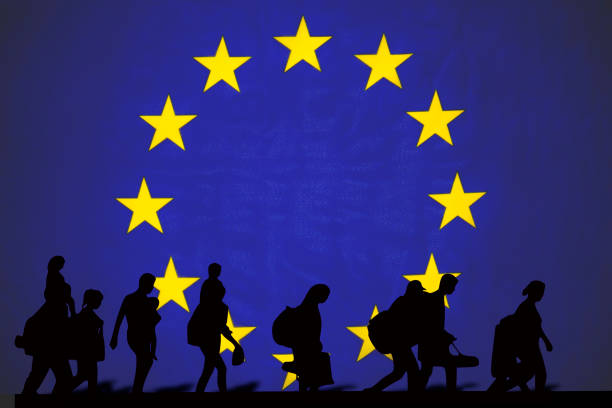
In the recent years we have seen the debate of immigration in the worldwide context being highly controversial. Nevertheless, while the arguments of either side prevail, it is impossible not to note the essential contribution of immigrants into the economy of Europe. The multidimensional influence of the immigrant community in relation to the European economy, highlighting the significance of a more accommodating legislative framework that embraces these immigrants and their diverse abilities within its scope.
Immigrants in Europe are an essential force that has a huge economic influence. Immigrants make significant contributions to labour markets, help innovations, and fill critical shortages of skills. The analysis of demographic trends shows the need for immigrants to keep European economies growing as its aging population diminishes. Diverse skills, unique perspectives, as well as strong work ethos that immigrant employees embody boosts general productivity in various sectors.
However, only a few empirical studies have attempted to assess the total effect of the net migrations upon this led partly to as shortage hence economic growth, harmonised comparative data on migration that is happening internationally by skill levels.
A research project addressing the repercussions of immigration between 12 to 22 countries for economic growth, the results were positive and there was an increasing trend from 1986 to 2006. However, it was anticipated that during 2020 to 2050 migration will increase coming from Africa and Middle East to Europe, nevertheless, despite the heightened migration dynamics, the overall global migration pressures are expected to maintain relative stability, hovering around 3% of the world’s total population.
In addition to economic contribution, immigrants play an important role in the social life of European communities. In many case immigrants provide the diversity of the cultures, traditions, and languages. These diverse populations add colour on the ethnicity of Europe nations turning them to a vibrant and inclusive society. Social innovation flows from innate resilience of immigrant communities. Immigrants who overcome adversities often build strong support networks, community programs, and initiative that address similar problems faced. Such efforts do not only support their health but also enhance bonds among citizens towards a united society.
Since Europe encounters demographic changes and elderly people, immigrants become important component of public health. The influx of fresh youthful people into countries experiencing population deficiencies such as children only families provide for a steady supply of workers for societal support networks. Given that in the twenty-first century connectivity is a measure of progress, immigrants are becoming bridges linking countries together. As the transnational individuals, their interactions pave ways for diplomacy, comprehension, and world partnership. The immigrant help create a more unified, cooperative, and harmonized world through their ability to foster feelings of being connected with one another.
A multi-pronged approach to developing an effective and wide-scale immigration policy entails an efficient system, linguistic support and equal access to education and jobs. Looking at how other countries do it and are successful can inform what needs to be done in this area. Canada is well known for its inclusive approach towards immigrants who score points are based on their skills and qualifications.
In conclusion, Europe is where modernity meets tradition and without immigrants, Europe might never be able reach that crossroad. These positive effects resonate through the economic, cultural and societal arenas with inclusive Europe of innovations and inter-nation relations. We should identify and appreciate these contributions, embracing a mindset that esteems immigrant diversity on the continent in our lives.
By The European Institute for International Law and International Relations
References
Boubtane, E. and J.-C. Dumont (2013), “Immigration and Economic Growth in the OECD Countries 1986-2006: A Panel Data Analysis”, Documents de Travail du Centre d’Economie de la Sorbonne, No. 2013.3, ftp://mse.univparis1.fr/pub/mse/ CES2013/ 13013.pdf.Gagnon, J. (2014 forthcoming), “Demographic Change and the Future of the Labour Force in the EU27, in other OECD Countries and Selected Large Emerging Economies”, Matching Economic Migration With Labour Market Needs, OECD Publishing, Paris.
Engler, P., MacDonald, M., Piazza, R., & Sher, G. (2020, June 19). Migration to advanced economies can raise growth. IMF. https://www.imf.org/en/Blogs/Articles/2020/06/19/blog-weo-chapter4-migration-to-advanced-economies-can-raise-growth















